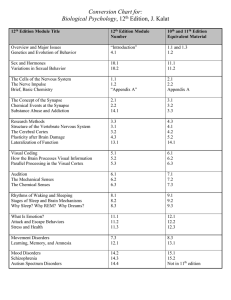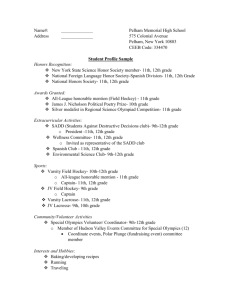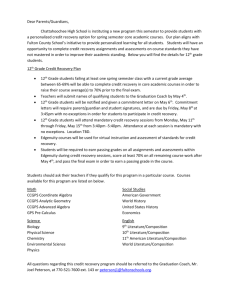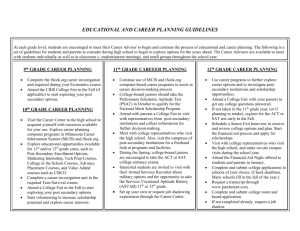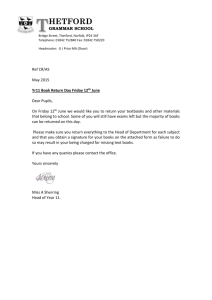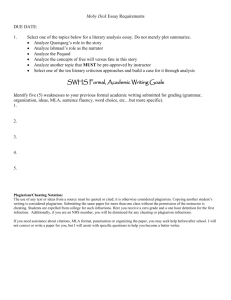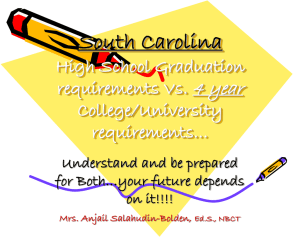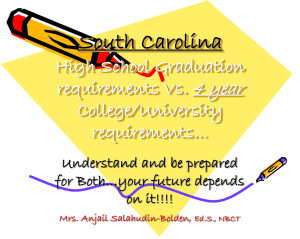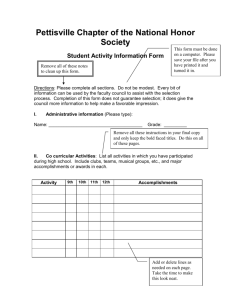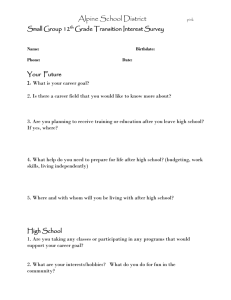11th & 12th ELA Summer Reading
advertisement
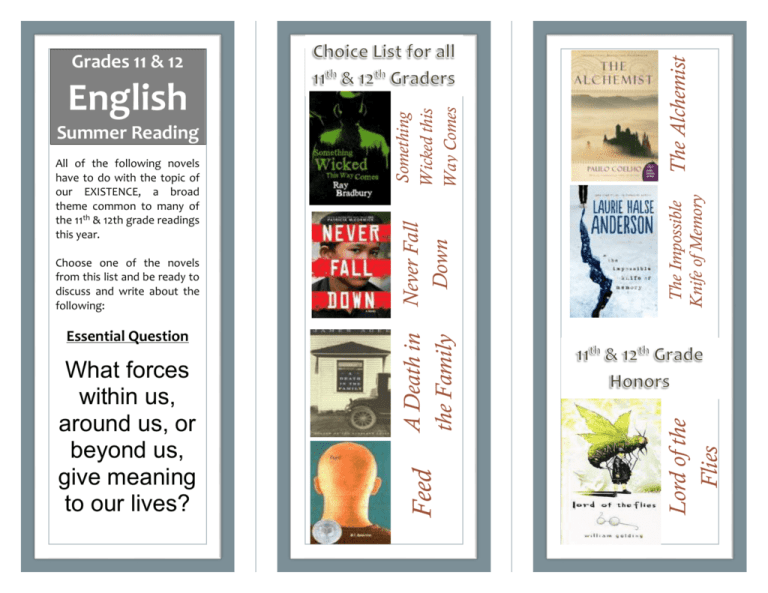
Essential Question What forces within us, around us, or beyond us, give meaning to our lives? The Alchemist The Impossible Knife of Memory Lord of the Flies Choose one of the novels from this list and be ready to discuss and write about the following: Feed All of the following novels have to do with the topic of our EXISTENCE, a broad theme common to many of the 11th & 12th grade readings this year. Never Fall Down Summer Reading A Death in the Family English Something Wicked this Way Comes Grades 11 & 12 Summer Reading Letter for Grades 11 & 12 Guidelines Dear Carver Students and Parents: Students entering the 11th& 12th grade will be expected to read the following: a. 11th & 12th grade CP: one book from the choice list b. 11th & 12th Honors: one book from the choice list and Lord of the Flies Before you select a book, take the time to read through reviews of the books. Make sure the book you choose is right for you. Each picture on the opposite side of this page is a hyperlink to a review. ---------When you return to school in the fall, you will share what you have read through both formal and informal assessments. This may mean writing a letter to the author or engaging in a Literary Circle discussion. Enjoy the summer. We look forward to discussing the books upon our return! Students often ask, “What should I be looking for as I read?” Here are six answers to this frequent question: 1. Character descriptions Readers can tell a lot about a person based upon his speech, thoughts, actions, looks, or his effect on others. Chances are the author wants us to feel a certain way about a character based upon his or her description. 2. Setting descriptions Authors often have a reason for including longwinded setting details. Sometimes the setting is symbolic; other times it establishes mood. Mark setting particulars, even if you think they’re boring. They may be important. 3. Thematic passages Are two characters having a philosophical conversation? Is the narrator sharing his opinion with no one in particular? Is one character giving advice to another? We can usually identify thematic passages in texts because they often stand apart from the book’s actual narrative or plotline. Mark thematic passages, even if they don’t make sense at first. 4. Problems or conflicts Is a character facing a tough decision? Having relationship problems? Feeling at odds with society? Facing a double standard? Clashing with another character? Mark the conflict! 5. Confusing events or dialogue Not sure what the author is saying or what the reason is behind a particular action or event? Flag passages that feel confusing. Write down your questions while you read. Sometimes the author confuses the reader on purpose, revealing the answers to questions elsewhere in the book. Other times questions lead to thematic interpretations. Got questions? Don’t be afraid to ask! 6. Essential Question Don’t forget the Essential Question: How can our differences shape, impact, or influence our perceptions of the world? Sincerely, The English Department Adapted from West Bloomfield High Summer Reading

